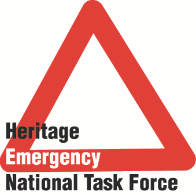- About Archives
- About SAA
- Careers
- Education
- Publications
- Advocacy
- Membership
Arts organizations and cultural institutions that have been impacted by Hurricane Irma may be eligible for Federal disaster assistance via:
If your institution is affiliated with a government agency, such as a state university or a county or municipality, you should communicate with that agency regarding your damage and any expenditures (overtime of personnel, purchases, etc.) to protect your facilities. The information below doesn’t necessarily apply to your institution because your expenditures will be included as part of your government agency – but only if it is aware of your damage.
If you are private nonprofit organization unaffiliated with any government agency, apply for FEMA Public Assistance (PA) and an SBA disaster loan.
Only certain private nonprofit (PNP) organizations are eligible under FEMA’s Public Assistance Grant Program. To be an eligible applicant, the PNP must show that it has:
Additionally, for a facility to be eligible, the PNP must own or operate the facility and provide a service that is:
For more information on eligibility of PNPs, refer to the Public Assistance Program and Policy Guide at https://www.fema.gov/public-assistance-policy-and-guidance.
Public Assistance reimburses eligible applicants for eligible work at eligible facilities at a reasonable cost. The cost share of eligible cost is 75% Federal and 25% Non-Federal. If your institution wishes to seek reimbursement through FEMA's Public Assistance Program, you can submit your Request for Public Assistance (RPA) online. Go to http://floridapa.org/ and click on “APPLY NOW” in the red Hurricane Irma Banner. See this guide to navigating FloridaPA.org.
FEMA will want to see a settlement or denial letter from your insurance company to ensure there is no duplication of benefits. So be sure to file an insurance claim promptly. If your insurance company covers your losses, FEMA will not duplicate that coverage. If you still have unmet needs or damages that the insurance company does not cover, then FEMA may be able to provide you with assistance.
Applicant Briefing
The Applicant Briefing provides a high-level overview of the Public Assistance (PA) Program. The topics it normally covers include:
See the Applicant Briefing schedule; note that they end this week. These briefings will be conducted virtually; see these instructions for attending.
For questions about Public Assistance, please contact your County Emergency Manager. A list can be found at http://www.floridadisaster.org/County_EM/ASP/county.asp.
Non-Critical PNPs – most arts organizations and cultural institutions – must first apply to the Small Business Administration for disaster assistance. If denied by SBA or if your costs exceed what SBA covers, then FEMA may be able to provide you with assistance.
There are several types of loan programs available to private nonprofits. They include:
|
Types of Loans |
Borrowers |
Purpose |
Maximum Amount |
|
Business Loans “Physical” |
Businesses and private |
Repair or replace real estate, equipment, furniture, etc. |
$2 million |
|
Economic Injury Loans |
Small businesses & private |
Economic injury disaster loans or working capital loans |
$2 million |
|
Mitigation |
Businesses, private |
Mitigate / prevent future loss to real property |
20% of verified physical damage. Homeowners limited to $200,000. |
 FEMA and the Smithsonian Institution co-sponsor the Heritage Emergency National Task Force, a partnership of 42 national service organizations and federal agencies created to protect cultural heritage from the damaging effects of natural disasters and other emergencies.
FEMA and the Smithsonian Institution co-sponsor the Heritage Emergency National Task Force, a partnership of 42 national service organizations and federal agencies created to protect cultural heritage from the damaging effects of natural disasters and other emergencies.